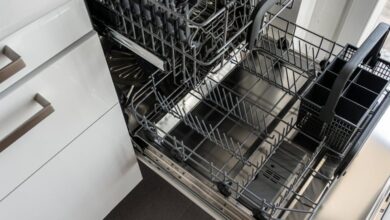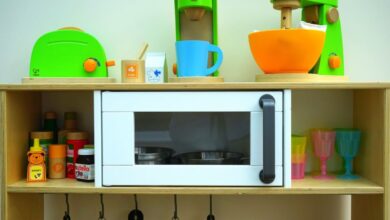How to Choose the Best Water Filter for Your Kitchen
In an era where health-conscious decisions are paramount, ensuring clean drinking water has never been more critical. With numerous water filter options available, selecting the right one for your kitchen can be overwhelming. Understanding the different types of filters, their benefits, and your specific needs is essential in making an informed choice.
Understanding Water Contaminants
Before diving into filter options, it’s crucial to understand what contaminants may be lurking in your water. Common impurities include chlorine, lead, bacteria, pesticides, and sediment. The specific contaminants in your water will influence which type of filter will best suit your needs. A good starting point is to check your local water quality report, which can often be found online. This report will highlight any potential pollutants, allowing you to choose a filter that targets those specific contaminants effectively.
Types of Water Filters
With various filtration systems available, it’s important to know the main types and how they operate.
Activated Carbon Filters are among the most popular choices for home use. They efficiently reduce chlorine, taste, and odor while removing some heavy metals and chemicals. These filters come in pitcher, faucet-mounted, and under-sink options, making them versatile for different kitchen setups.
Reverse Osmosis (RO) Systems are another excellent choice, especially for those dealing with hard water or excessive contaminants. RO systems employ a semi-permeable membrane to remove up to 99% of dissolved solids, including heavy metals and bacteria. While they are highly effective, they tend to be more expensive and require more maintenance than activated carbon filters.
Ultraviolet (UV) Purifiers use ultraviolet light to kill bacteria and viruses, ensuring your water is microbiologically safe. However, UV purifiers are typically used in conjunction with other filtration systems, as they do not remove chemical contaminants.
Selecting the Right Size and Capacity
When choosing a water filter, consider the size and capacity that best fits your household’s needs. For smaller families or individuals, a pitcher filter may suffice, while larger households may require a more robust under-sink system. Assess your daily water consumption to ensure your filter can handle your demands without constant replacements or refills.
Evaluating Filter Lifespan and Maintenance
Every water filter has a specific lifespan, often indicated by the number of gallons it can process before needing a change. Regular maintenance is crucial for optimal performance. Activated carbon filters typically need replacement every 2-6 months, while reverse osmosis membranes can last 2-5 years but require regular pre-filter changes. Be sure to check the maintenance requirements before making a purchase to avoid unexpected costs and ensure your filter operates efficiently.
Assessing Cost vs. Benefit
While it may be tempting to opt for the cheapest option, consider the long-term benefits and costs associated with each system. Higher quality filters may have a higher initial purchase price but can save you money in the long run by reducing bottled water purchases and providing superior filtration. Furthermore, consider the potential health benefits of drinking cleaner water, which can outweigh the upfront costs.
Checking Certifications
When selecting a water filter, look for certifications from reputable organizations, such as NSF International or the Water Quality Association (WQA). These certifications indicate that the filter has been independently tested and meets specific safety and performance standards. Filters with these certifications are generally more reliable and effective in removing contaminants.
Making Your Decision
Choosing the best water filter for your kitchen doesn’t have to be a daunting task. By understanding the contaminants in your water, evaluating the different types of filters available, and considering your household’s needs, you can make an informed decision. Take your time to research, read reviews, and consult with experts if necessary.
Ultimately, the right water filter will enhance your kitchen experience by ensuring that the water you consume is clean, safe, and great-tasting. Enjoy the peace of mind that comes with knowing your family is drinking the best quality water available.







